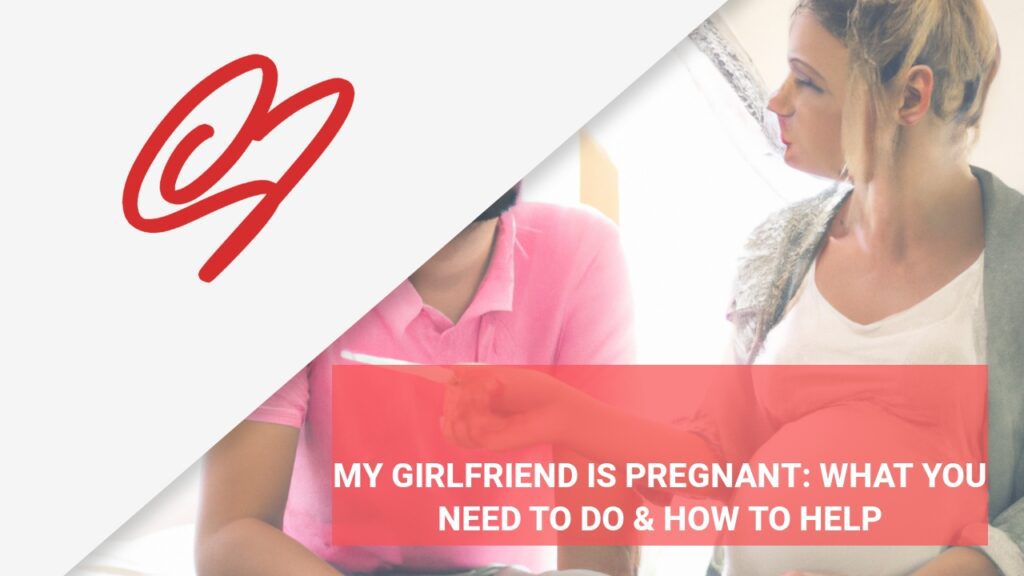What’s Up? What’s The Issue?
Hey Soul Bonding Love,
I’m in a bit of a pickle here. I’ve been dating this amazing guy for nearly a year now. He’s funny, he’s smart and most importantly, we vibe on so many levels. But lately, there’s been this cloud hanging over us – he keeps saying that I guilt trip him and I have no idea what to do.
We’re both working people, trying to climb up the corporate ladder as fast as we can. And yes, it gets super stressful sometimes and we can’t spend as much time together as other couples might. Often when he calls off our plans due to work, or even if he isn’t able to message me back immediately because of a meeting or whatever; it feels bad, you know? It’s not like I don’t understand his situation because believe me, my job has its moments too! But despite that, I make sure to keep some time aside for him.
So when this happens piling up and all, sometimes without realising it myself; I start saying things like “it wouldn’t hurt if you paid a bit more attention” or “why does it always feel like your job is more important than me”. And according to him these are my guilt trips.
He came up with this last night after yet another cancelled date night. He felt guilty for letting work get in the way but at the same time said that my comments make him feel worse about the situation; like he’s letting me down all the time.
I never meant for any of those comments to be guilt trips! They were just simple remarks on how I was feeling, in hope that maybe he’d see how downhearted his cancellations made me feel. The last thing I want is for him to be unhappy because of something between us.
So here’s where your advice is needed – am I really guilt tripping him without even realising it? If so how do I convince him otherwise? And better yet – how can we balance our relationship with our crazy lives?
Eagerly waiting for your reply,
Miss Unintended Guilt Tripper
The Raw And Honest Truth I Would Give To My Little Sis…
If you were my little sis, I’d tell you this – relationships are tough, and yours sounds like it’s having its fair share of rocky moments. Balance is key in everything, including relationships.
Firstly, about the guilt tripping thing. It’s great that you’re communicating your feelings, but sometimes, it’s not what we say, but how we say it.
You don’t mean to make him feel guilty, fair enough – yet he feels that way. This implies a breakdown in communication somewhere.
My tip? Use “I” statements instead of “you” statements.
Instead of saying “Why does it always feel like your job is more important than me”, switch to something like “I feel a bit ignored when work cancels our plans. I understand it happens but I thought maybe we could figure out a balance?”
This way you’re expressing your feelings without blaming or accusing him.
Moving onto the second issue: balancing work with love.
Make sure each person gets their ‘me-time’, ‘work-time’, and ‘us-time’.
Talk to him about setting things in place for when work gets hectic. Maybe agree on certain days when neither of y’all can cancel plans unless there is a very serious reason.
Lastly Sis, remember this: A relationship should be a safe space for both parties involved – where they can express their feelings without fear.
Have an open conversation with him about how y’all communicate. Be receptive of his feelings too.
You got this girl! Good luck!
With Love,
Your Agony Aunt
Let’s get a deeper analysis, though…
The Root of the Issue: He Says You Guilt Trip Him
Your boyfriend has expressed to you that he feels ‘guilt-tripped’, and this can project an immediate sense of defensiveness. It’s important at this stage not to jump to conclusions or react impulsively. Instead, let’s unpack what he could potentially mean by this.
In many cases, when someone refers to being ‘guilt-tripped’, it means they feel manipulated into doing something they don’t want to do by the use of guilt as a weapon. This can create feelings of resentment, strain communication lines and ultimately harm your relationship.
In essence, his accusation suggests that he feels under pressure or controlled, possibly because he perceives your behavior as emotionally manipulative – even if you don’t intend it that way.
Digging Deeper: Is It Guilt-Tripping?
Now we’ve established what guilt-tripping generally represents, here comes the real question: Are you indeed guilt-tripping him?
It may seem like a harsh question but it’s incredibly important for self-awareness and growth within your relationship. Try examining past instances where such accusations arose. What triggered these comments? How did you present your concerns or requests?
Sometimes,! we may unintentionally use guilt-inducing language. It’s worth considering whether words like “You always…” or “You never…” have slipped into your conversations.
Resolve and Transform: Turning Accusations Into Constructive Communication
Great! Now we’ve gotten some clarity on what might be happening in your situation. The next step is figuring out how we can transform these feelings of blame into constructive communication.
Acknowledgement is key. When an accusation is thrown at us our instinct might be to throw it right back but try taking a deep breath instead and acknowledging his feelings first,‘I hear that you’re feeling controlled/guilted by me.’
Next up- address without getting defensive! Yes, easier said than done but absolutely essential for better communication. ‘I never meant for my words/actions to come off that way.’
Then talk openly about how best to express wishes without making the other person feel cornered.Talking solutions instead of problems often helps ease tension.
Remember- every challenge faced in a relationship is actually an opportunity for both parties to learn more about each other and grow together.
Your Intent Doesn’t Always Match Your Impact
In any type of conversation (especially sticky ones), there’s often a gap between what we intend to say and how it lands with others.
Your intention might be innocent- perhaps you’re trying to express dissatisfaction about something in the relationship or share feelings about unmet needs. However, if this isn’t expressed tactfully, it could easily come across as guilt-tripping
The key takeaway here? Ensure alignment between intent and impact through clear, honest communication.
All About Them Feels: Emotional Responsibility
It’s vital not only understanding our own emotions but respecting our partner’s too.Balancing emotional responsibility lets both individuals own their feelings without blaming the other person unnecessarily.
So ask yourself – are his reactions justified? Are there areas where you could adjust? Exploring these questions together openly can really help create balance & harmony within your interactions.
Finally remember- Relationships work best with understanding & compromise from both sides so make sure this conversation happens mutually!<
My Boyfriend Says I Guilt Trip Him: What Next?
What was said has been said… so what next?
Realize That Emotions are Involved
Often times, your boyfriend’s claim of you guilt-tripping him may come from a place of genuine hurt or confusion. It’s important to acknowledge his feelings and understand that he may be struggling with how he’s interpreting your actions. Perhaps he feels cornered or manipulated in certain situations?
Hearing about his discomfort can feel discouraging. However, it’s a positive step that he’s communicating his emotions instead of bottling them up.
Taking a Step Back to Self-Reflect
Self-awareness is key in any relationship. Once your boyfriend has expressed his feelings, take some time to reflect on your behavior and interactions.
Do you often find yourself using phrases like “After everything I’ve done for you…” or “If you really loved me…”? These can be signs of unintentional emotional manipulation.
Fostering Open Communication
Communication is an essential part of any relationship. Be open about how the accusations make you feel, but also listen attentively to what he has to say.
The goal should not be to deny or justify the behavior but instead understand it from his perspective.
Navigate Through Things Together
Tackling problems in relationships shouldn’t be seen as one person against another – rather, it should be both partners against the problem.
Take this as an opportunity for both of you to grow, learn and set out clear boundaries about what constitutes as ‘guilt tripping’.
Cultivating Emotional Intelligence
Emotional intelligence plays a crucial role in turning such situations around.
A heightened awareness towards each other’s feelings and reactions will help steer clear from invasive allegations such as guilt-tripping.
Leveraging Relationship Tools & Resources
If things seem overwhelming, don’t hesitate to reach out for professional help.
Couples therapy or counseling sessions broadens understanding between partners by facilitating unbiased communication.
Moving Forward with Positivity
Remember that everyone makes mistakes – don’t beat yourself up over this! Instead, use this situation as a stepping-stone towards building a healthier relationship.
Your ultimate goal should always be mutual happiness and understanding.
You Might Need To Go In Another Direction…
The truth is, all relationships require work and continuous communication. I’ve been there, feeling like I’m struggling, but not knowing exactly why. What if I told you there’s a fun and interactive way to gain clarity on what you’re looking for in a relationship?
Meet the Dating Connect Card Game.
For me, this game isn’t just about having fun.
It’s a comprehensive guide that covers all aspects of dating, from that initial flutter in your stomach to the hard work of building a long-lasting relationship.
What I love about it is the range of questions and prompts. It’s like having a relationship coach right there on your coffee table.
But it’s not all just fun and games. This game is backed by science, incorporating techniques used in Cognitive Behavioral Therapy (CBT), Eye Movement Desensitization and Reprocessing (EMDR), and mindfulness.
It pushes you to reflect on your own values, priorities, and preferences.
I’ve also found that in the process, I’ve gained a greater clarity about what I’m looking for in a partner and what I have to offer.
Here’s the best part…
With each game purchased, a part of the profits is donated to Feeding America. So while you’re discovering more about yourself and relationship, you’re also contributing to a good cause! 👌
Perfect for any occasion, I’ve found the Dating Connect Card Game to be the perfect gift for dads, boyfriends, and couples, whether it’s Father’s Day, an anniversary, or just a regular Tuesday. It’s more than just a game, it’s a tool for communication, a love language translator, and a heartfelt gesture, all in one neat package.
Further Advice…
If your boyfriend accuses you of guilt-tripping, it might be because he feels that you’re blaming him for certain issues. In this case, it could be helpful to read “My boyfriend thinks I’m judgemental”. This article will provide some insight on why he may feel this way and how to address the issue.
Another great resource is the article “My boyfriend thinks my boundaries are controlling”. If your boyfriend perceives your concerns as attempts to control him, understanding how to set healthy boundaries can significantly improve your relationship.
If these accusations are causing frequent arguments, then check out “My boyfriend thinks every conversation is an argument”. This article dives into why he might have this perception and provides solutions on how to have more constructive conversations.
Lastly, just in case these misunderstandings extend into hurtful comments from him, I recommend reading “My boyfriend says mean things to me when we fight”. This discusses why hurtful comments can come up in arguments and offers strategies on handling such situations.


